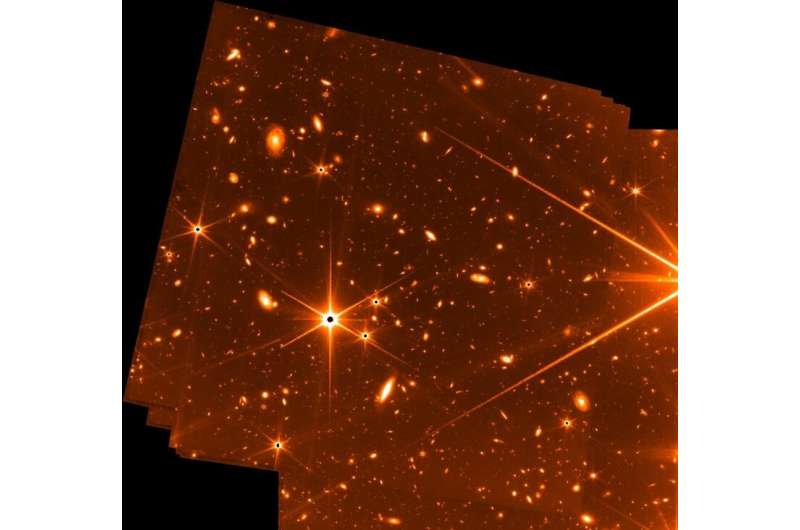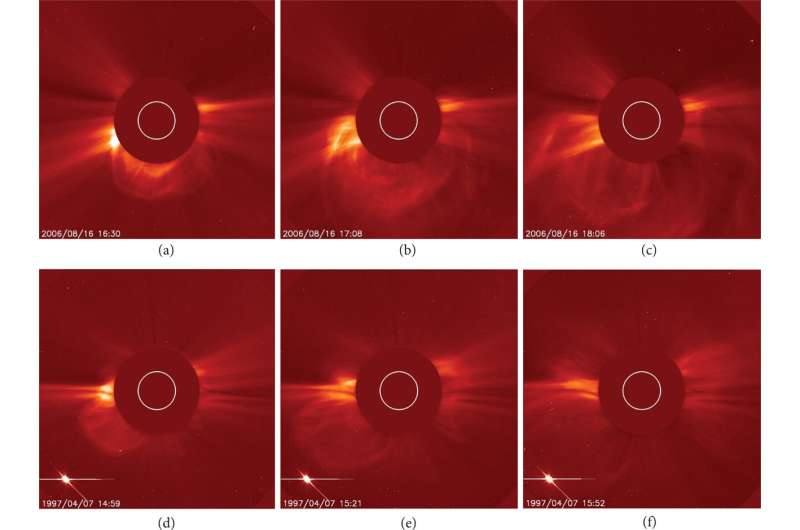
Copernical Team
The life puzzle: the location of land on a planet can affect its habitability
 New climate models have found that the amount and location of land on a planet's surface can significantly impact its habitability. Astronomers have identified substantial differences in surface temperature, sea ice and water vapour across a planet's surface for different land configurations. The work will be presented on Monday 11 July at the National Astronomy Meeting (NAM 2022) by Evelyn Macd
New climate models have found that the amount and location of land on a planet's surface can significantly impact its habitability. Astronomers have identified substantial differences in surface temperature, sea ice and water vapour across a planet's surface for different land configurations. The work will be presented on Monday 11 July at the National Astronomy Meeting (NAM 2022) by Evelyn Macd Prospecting for Interstellar Oil
 We have developed a new method to look for carbon compounds in space, akin to prospecting for oil on Earth. Between the stars lie vast amounts of interstellar gas and dust, spread thinly throughout our Galaxy.
The dust can contain compounds of carbon. When it does we call it carbonaceous interstellar dust. This is an important reservoir for the organic material in space. The continual cycl
We have developed a new method to look for carbon compounds in space, akin to prospecting for oil on Earth. Between the stars lie vast amounts of interstellar gas and dust, spread thinly throughout our Galaxy.
The dust can contain compounds of carbon. When it does we call it carbonaceous interstellar dust. This is an important reservoir for the organic material in space. The continual cycl NASA's Webb Telescope Is Now Fully Ready for Science
 The months-long process of preparing NASA's James Webb Space Telescope for science is now complete. All of the seventeen ways or 'modes' to operate Webb's scientific instruments have now been checked out, which means that Webb has completed its commissioning activities and is ready to begin full scientific operations.
Each of Webb's four scientific instruments has multiple modes of operati
The months-long process of preparing NASA's James Webb Space Telescope for science is now complete. All of the seventeen ways or 'modes' to operate Webb's scientific instruments have now been checked out, which means that Webb has completed its commissioning activities and is ready to begin full scientific operations.
Each of Webb's four scientific instruments has multiple modes of operati Webb telescope reveals deepest image of early universe

Webb telescope to reveal earliest galaxies after Big Bang

NASA's James Webb Space Telescope is poised to reveal some of the earliest galaxies that formed after the Big Bang, the White House said Monday, as anticipation builds for the powerful observatory's first images.
President Joe Biden will unveil the images during a livestreamed event starting at 5:00 pm (2100 GMT).
President Biden Reveals First Image from NASA’s Webb Telescope
 President Joe Biden released the first full-color image from NASA’s James Webb Space Telescope Monday, during a public event at the White House in Washington.
President Joe Biden released the first full-color image from NASA’s James Webb Space Telescope Monday, during a public event at the White House in Washington. Biden revela la primera imagen del telescopio Webb de la NASA
 El presidente Joe Biden hizo pública el lunes la primera imagen a todo color del telescopio espacial James Webb de la NASA, durante un acto público en la Casa Blanca en Washington.
El presidente Joe Biden hizo pública el lunes la primera imagen a todo color del telescopio espacial James Webb de la NASA, durante un acto público en la Casa Blanca en Washington. Webb’s first deep field
 Image:
Webb’s first deep field
Image:
Webb’s first deep field Webb delivers deepest infrared image of Universe yet in special briefing

The international NASA/ESA/CSA James Webb Space Telescope has delivered the deepest, sharpest infrared image of the distant Universe so far.
U.S. President Joe Biden unveiled the image of galaxy cluster SMACS 0723, known as Webb’s First Deep Field, during a White House event on Monday 11 July.
How scientist applied the recommendation algorithm to anticipate CMEs' arrival times

Coronal mass ejections (CMEs) are eruptive solar events. They are often associated with solar flares and filaments. CMEs can cause space weather events such as geomagnetic storms, high energy electron storms, hot plasma injection, ionospheric storms, and increased density in the upper atmosphere.
Large CME events can impact communications, navigation systems, aviation activities, and even power grids.
